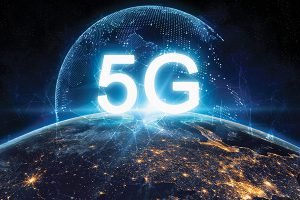Bloomberg
Airlines warned of increased flight delays after AT&T Inc. and Verizon Communications Inc. brushed aside a U.S. government request to postpone new 5G service that aviation interests say risks safety because it may interfere with aircraft electronics.
The two wireless companies said the request from Transportation Secretary Pete Buttigieg and Steve Dickson, administrator of the Federal Aviation Administration, would be “to the detriment of†millions of mobile customers. The companies said they might offer a six-month pause near some airports.
The FAA and DOT were considering the response but airlines and regulators predicted substantial impacts on flight schedules if there aren’t some adjustments to the 5G service set to start Jan. 5. The Airlines for America trade group, using worst-case assumptions, said there could be as many as 350,000 commercial flights impacted per year at a cost of $2.1 billion.
“Without appropriate mitigations, the 5G deployment around airports could disrupt as many as 345,000 passenger flights— impacting 32 million travelers— in addition to 5,400 cargo flights each year in the form of delays, diversions or cancellations,†Airlines for America said in a statement.
The new 5G signals would use a set of airwaves made freshly available to mobile communications providers. The frequencies are near those used by altitude-sensing radar altimeters. Airlines and aircraft manufacturers have said that creates a chance of interference that could leave some landings unsafe.
The wireless industry said power levels are low enough to preclude interference, and the gap between frequencies is sufficiently large to ensure safety. The carriers on Sunday cast the 5G rollout as a priority, citing a race with China to offer extensive high-speed mobile broadband, and escalating demand for wireless service amid the Covid pandemic.
Stakes are high for both industries. The wireless industry paid more than $80 billion in an auction for access to the frequencies in question, and AT&T and Verizon will rely on them for network upgrades to compete with T-Mobile US Inc. in providing the next generation of fast mobile broadband.
In a letter Friday, Buttigieg and Dickson asked the wireless providers for delay of up to two weeks. The officials forecast possible “widespread and unacceptable disruption†to air traffic as planes avoid airports bathed in 5G signals that could affect electronics used during landings.
‘Irresponsible Abdication’
The wireless carriers responded Sunday in a letter from each company’s chief executive officer: Verizon’s Hans Vestberg and AT&T’s John Stankey.
“Your proposed framework asks that we agree to transfer oversight of our companies’ multi-billion dollar investment in 50 unnamed metropolitan areas representing the lion’s share of the U.S. population to the FAA for an undetermined number of months or years,†Vestberg and Stankey wrote. “Even worse, the proposal is directed to only two companies.â€
The wireless executives said agreeing to the proposal would be “an irresponsible abdication of the operating control required to deploy world-class and globally competitive communications networks.â€
 The Gulf Time Newspaper One of the finest business newspapers in the UAE brought to you by our professional writers and editors.
The Gulf Time Newspaper One of the finest business newspapers in the UAE brought to you by our professional writers and editors.
